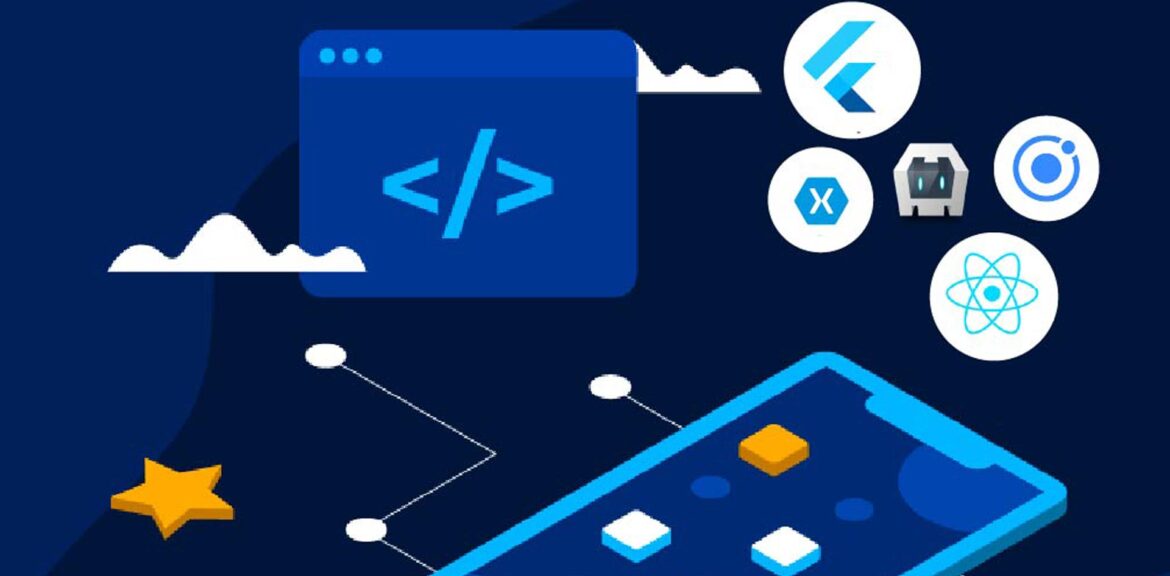In today’s hyper-digital era, having a mobile app isn’t just a luxury—it’s a necessity. Whether you’re a startup or an established enterprise, a high-quality mobile app can significantly boost customer engagement, streamline operations, and enhance brand loyalty. But with a plethora of platforms available, choosing the right one for your mobile app development journey can be daunting. To help you make an informed decision, we’ve rounded up the best mobile app development platforms that make building top-notch apps efficient and scalable.
1. Flutter – For Beautiful Cross-Platform Experiences
Backed by Google, Flutter is a powerful UI toolkit that enables developers to build natively compiled applications for mobile, web, and desktop from a single codebase. Flutter uses the Dart programming language and is known for its expressive UI, fast rendering, and customizable widgets.
Why Choose Flutter?
- Single Codebase: One code for both Android and iOS.
- Hot Reload: Allows developers to instantly view changes without restarting the app.
- Flexible UI: Flutter’s widget-based architecture allows custom and attractive designs.
Ideal for MVPs, startups, and businesses looking to save development costs without compromising on quality.
2. React Native – Facebook’s Favorite Framework
Developed by Facebook, React Native enables developers to create cross-platform apps using JavaScript and React. With a large community and strong third-party plugin support, it is one of the most popular frameworks among developers.
Why Choose React Native?
- Reusable Code: Write once, deploy anywhere (Android, iOS, Web).
- Community-Driven: Extensive libraries and components to accelerate development.
- Live & Hot Reloading: Improves development speed and debugging.
React Native is ideal for social media apps, eCommerce platforms, and apps with real-time updates.
Also Read: The Future is Now: Dive into Advanced AR VR Solutions
3. Swift – The Go-To for iOS Excellence
If you’re building an app exclusively for iOS, Swift is the gold standard. Developed by Apple, Swift offers speed, safety, and performance. It integrates seamlessly with Apple’s ecosystem, making it a perfect choice for high-performance iOS applications.
Why Choose Swift?
- Optimized for Apple: Fast, secure, and future-proof for iOS, watchOS, and macOS.
- Safe Syntax: Less prone to bugs and crashes.
- Open Source: Supported by a growing community of developers.
Swift is great for fintech, healthtech, and apps requiring top-tier performance on Apple devices.
4. Kotlin – The Official Android Language
Kotlin is now Google’s preferred language for Android development. It’s concise, expressive, and fully interoperable with Java. Developers love Kotlin for reducing boilerplate code and improving app performance.
Why Choose Kotlin?
- Full Android Studio Support: Seamless integration for Android developers.
- Interoperability with Java: Easily integrates with existing Java code.
- Less Error-Prone: More reliable code structure.
Kotlin is perfect for Android-first applications or apps that require backend integration with Java-based systems.
5. Xamarin – Powered by Microsoft
Xamarin is a .NET-based mobile app development framework by Microsoft. It allows you to build cross-platform apps using C#. It provides near-native performance and a wide set of APIs for accessing native device functionalities.
Why Choose Xamarin?
- C# and .NET Framework: Ideal for developers with Microsoft stack experience.
- Native Performance: Delivers high performance with access to platform-specific APIs.
- Integration with Visual Studio: Smooth workflow with a trusted IDE.
Xamarin is great for enterprise-grade applications, especially if your backend runs on Microsoft technologies.
6. Ionic – Web Technologies on Mobile
Ionic is an open-source SDK for building mobile apps using web technologies like HTML, CSS, and JavaScript. It’s powered by Angular and is known for its speed and performance across platforms.
Why Choose Ionic?
- Fast Development: Leverage web development skills to build mobile apps.
- Cross-Platform: Build for iOS, Android, and the web with one codebase.
- Large Plugin Library: Access native device features like camera, GPS, etc.
Ionic is ideal for startups and businesses looking for quick prototypes and hybrid app solutions.
7. Apache Cordova – Simplicity in Hybrid Apps
Formerly known as PhoneGap, Apache Cordova allows developers to wrap up HTML, CSS, and JavaScript code depending on the platform. It’s one of the earlier frameworks that supported hybrid development.
Why Choose Cordova?
- Easy to Learn: Minimal learning curve for web developers.
- Plugin Ecosystem: Offers a wide range of community plugins.
- Multi-Platform Compatibility: Create apps for several platforms with one codebase.
Cordova is suitable for content-based apps, like eBooks or event apps.
How to Choose the Right Platform?
Choosing the best mobile app development platform depends on:
- Target audience (iOS, Android, or both?)
- Budget and timeline
- Required app performance
- UI/UX complexity
- Long-term scalability
For most businesses, cross-platform frameworks like Flutter or React Native offer a great balance between cost, speed, and user experience. However, for performance-intensive applications, native platforms like Swift and Kotlin are better choices.
Conclusion: Build with Confidence, Build with Schnelltek
Building a successful mobile app requires more than just picking a platform—it needs expertise, creativity, and strategic thinking. Whether you’re envisioning a simple app or a complex digital solution, Schnelltek Software Solutions can turn your ideas into reality.
With a team of expert developers proficient in all major platforms—from Flutter to Swift and beyond—Schnelltek ensures high performance, scalability, and intuitive design in every app we build.
🔗 Ready to build your dream app? Connect with Schnelltek Software Solutions today and take the first step towards mobile excellence.

